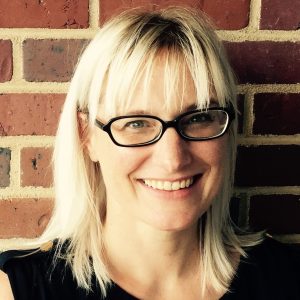Frances Kneupper will write a scholarly study of Medieval prophets
 AUGUST 31, 2020 BY KATHRYN ALBRITTON
AUGUST 31, 2020 BY KATHRYN ALBRITTON
Frances Kneupper, associate professor in the Arch Dalrymple III Department of History at the University of Mississippi, has been honored as a 2020-21 senior fellow at the Institute of Advanced Studies at Central European University.
Founded in 2011 in Budapest, Hungary, the institute promotes scholarly research in the context of an intellectual interdisciplinary community. It annually grants up to 30 fellowships to scholars from around the world focusing on social sciences, humanities, law and art.
Kneupper, a cultural historian of religion whose research focuses on heresy, prophecy and religious dissent in the Holy Roman Empire, is scheduled to leave for Budapest in October. The first senior fellow at the institute from Ole Miss will work on her second book project, “Beware of False Prophets: The Contest over Prophecy in the Late Middle Ages.”
“Beware of False Prophets” examines how several groups of Medieval women in Europe declared themselves prophets – a phenomenon typically limited to the realm of men – and were fiercely opposed by their male contemporaries.
“This was an argument about whether women should have a voice and authority,” Kneupper said. “You can see the same dynamics still being played out today when women try to claim power in a male-dominated sphere. This is a universal issue.”
Her other scholarly works include “The Empire at the End of Time: Identity and Reform in Late Medieval Germany Prophecy” (Oxford University Press, 2016) and a digital textbook, “Foundations of Western Culture Through 1500” (Great River Learning, 2015).
“Frances is an innovative researcher and well-known interpreter of the Medieval world for both lay and academic audiences,” said Noell Wilson, UM associate professor and chair of history. “She is respected for her scholarship and teaching alike.
“We are thrilled that she has this next year to complete her current book project while also cultivating intellectual bridges with historians in Budapest and Europe more broadly.”

